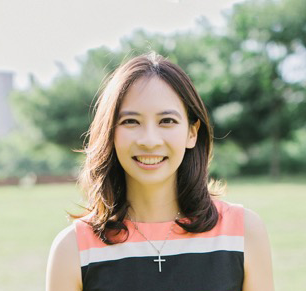
Cindy Brandt writes about faith and culture at cindywords.com. She is the author of Outside In: Ten Christian Voices We Can’t Ignore. She studied Bible/Theology at Wheaton College and holds a Masters of Arts in Theology from Fuller Seminary. She serves on the board of One Day’s Wages, an organization fighting extreme global poverty. She writes from Taiwan, where she lives with her husband and two children on the 33rd floor of a high rise.
Posts By This Author
How Parenting Can Inform Theology
Being a parent is to get a front row seat to the construct of being human — from the intense physical engagement of a variety of bodily functions — feeding, pooping, bathing — to emotional regulation, and profound spirituality. As I argue in my book, parenting children is one of the most critical strategies in creating justice, beauty, and carrying out the work of God in our world.
Cyntoia Brown Reminds Us That Children Exist In Every Intersection of Oppression

Image via PBS documentary Criminal Justice System: What to Do
In Brown’s case, her crime is murder, but the factors leading to her crime should impact the way prosecution tries and sentences. It has been reported that she suffered from Fetal Alcohol Syndrome at birth, was given up for adoption, placed in foster care, and then became a sex trafficking victim. Children and youth are full human beings capable of making moral choices and should be held responsible for them, but to punish without a thorough investigation of their vulnerabilities as minors is injustice.
The Earth Speaks to Us Through Poetry and Data
To tell a Christian story about environmental care, we must redefine Christian stewardship. For a movement to attach Christ’s name to it, it must embody the spirit of Jesus as one who gave away his power. Christian stewardship, then, is not dominating with power, but yielding with care. First, we must listen to what the natural world is telling us and respond to it accordingly, not only because we ought to be tenderhearted people, but because it ensures our mutual flourishing
Dear Donald Trump: Now We're All Activists
When did we all become activists?
Was it when social media made it accessible for us to change our profile pictures?
When we realized we each had a platform to make our voices heard?
Was it when pictures of refugee babies drowned ashore shook our moral core?
Why I Quit My Job at an Evangelical Missionary School
I want to err on the side of love and inclusion over doctrinal borders. I want to stand with the marginalized against the status quo. I want to be an ally because gay rights are human rights.
This Advent, Go Ahead and Cry
For the last two thousand years, our salvation has come via that peaceful, sleeping baby, weary from being a tiny human. A revolution for a better world begins from the most ordinary of miracles, from small, gasping breaths after a good cry. This is where we will rise, those of us hopeless from the election results, from the margins, from the outside, from the ordinary, miraculous moments of our lives.
Forget Short Term Mission Trips. Encourage Young Christians to Join Protests.

Image via Ms Jane Campbell/Shutterstock.com
How can the Christian youth of today band together with non-Christian youth in a way that fuels their dreams and taps into the vibrant energy coming of age? I want to suggest the idea of protest as mission.
When Believers Don't Believe

Image via Eakachai Leesin/Shutterstock.com
Why is it so difficult for people of faith, who manage to structure their community and life around the belief of an unseen God, to not able to believe the very visible, tangible words and cries of their flesh-and-blood neighbors? Who forget that the very image of God is imprinted into these bodies?
O you of little faith, why don’t you believe?
3 Ways to Avoid Burnout in the Justice Fight

Image via NorGal/Shutterstock.com
At the first leg of this journey, I felt a responsibility to steward the privileges and resources that I was given to serve the poor. But the more I learned about development and the deeper I leaned into the complexities of poverty and other forms of oppression, the more my eyes became opened to how interconnected I was to the suffering of others. Justice for the poor is more than cutting a check; it means reexamining our own complicity in the systems of injustice. It’s about what water we drink, what clothing we buy, what cars we drive, how often we upgrade our devices, and where we source the foods that end up on our dinner table. It feels as though the more causes we are aware of, the more we felt helplessly caught in the web of injustice. The thought of the sweat of child labor woven into the shirts we put on our own children is heartbreaking.
When Justice Work Becomes an Idol
I think there is a very real need for us to grapple with an idolatry of justice. As technology affords us both an instantaneous and relentless awareness of myriad justice causes, and the often-illusory perception of our capability to effect change, it becomes very easy to puff up our justice egos and enlarge our savior complex. Pragmatism and good ol’ work ethic drives us to advance our movements by documenting success, hitting program goals, and mining visible storytelling of dramatic life changes of the people we rescue.
Christian Art and the 'Ministry of Imagination'

Graffiti on the wall of the abandoned building in Zelenogorsk City, Russia. TatyanaKokoulina / Shutterstock.com
Of course good art is in the eye of the beholder, but I define good art to be creations of paint, music, or stories that speak profoundly to the human condition and break open our imagination beyond what already is. Much of what is qualified as “Christian” art or music has instead done the opposite. It shuts down possibilities by offering a script to be consumed. Instead of creating space for genuine exploration of questions about God — who God is, what God does, where God can be found, etc. — Christian art supplies manufactured answers in a new marketing package. We have struggled to rise up into a prophetic imagination to speak against the dominant consumer culture. If anything, the subculture has been subsumed by consumerism.
Are Children Born Evil? Challenges for Christian Parenting

Image via Mizina Oksana/Shutterstock.com
Undergirding Tripp’s parenting book is a theological assumption of the nature of the child and the role of the parent. All of his chapters and discussions on methods of discipline and instruction are predicated by the framework of where the child is in relation to the parent. A good storyteller (and marketer) knows to introduce a problem in order to then supply the solution, which Tripp does successfully. According to Tripp, the problem begins the fact that a child’s heart is oriented towards evil. The solution to this problem is for parent to, acting as a representative of God, bring the child back into the “circle of blessing.”
Are Religious Kids Meaner? We've Got Work to Do

Image via Pavel L Photo and Video/Shutterstock.com
Working out our salvation and instilling a life of faith in our children isn’t about executing rituals with precision. It isn’t about teaching them to pray eloquently, or to get them to obey without question. It isn’t to give them the letter of the law so they can judge the world with a heavy-handed measuring stick. It is to form and shape their identities into one oriented towards justice and beauty in our world. It is to open their eyes to the realities of oppression and suffering.
In a world where there isn’t enough stickers for everyone in the school, how can we invite the children into the struggle for equality? How do we teach that Jesus wants to give stickers to everyone? If it isn’t good news for everybody, it isn’t good news for anybody. How can we place sticker-sharing to such high priority that it becomes embedded in our children’s psyche, so that kindness is instinctual?
May our children then parallel secular peers in generosity and love. More importantly, may the children of our generation inspire us, the adults, toward greater mercies for the suffering. May love win, justice roll, and the moral arc bend toward the right direction, so we can hold witness to the transformation of communities for good.
I Like Your Christ, I Do Not Like Your Christian Lingo

Image via ene/Shutterstock.com
Within Christian culture, Christian language is essential and sacred to build each other up and nurture shared space. But as soon as you venture outside of that intimate circle, anywhere you begin to speak in a public sphere, Christian lingo turns into an identity marker, a boundary line that can easily alienate those who perceive you as speaking a foreign language.
I see a lot of shouting Christians, online and elsewhere. I think there’s this prevalent idea that boldly proclaiming one’s faith is a virtue and somehow glorifies God. And while I think it is important for each of us, Christian or not, to claim a right to state our convictions, our best hope of compelling others towards Christ is to stop shouting at them. Remember there are many other languages, and we only earn our right to connect with others when we have learned to respect their values, learn their history, appreciate their culture, and speak their mother tongue.
What Motherhood Teaches Me About the Universe

Image via AstroStar / Shutterstock
My daughter is in seventh grade, next year she will be in eighth. She tells me this means she will be “the king of middle school.” She will go to a leadership camp and learn what it means to cultivate leadership qualities in order to be a good king for the underlings in sixth and seventh grade.
And then she will graduate middle school and it’s back to the bottom of the pecking order — one minute a king, the next, a lowly high school freshman. Just when you think you’ve learned everything there is to know comes the swift reminder you are only just beginning.
Out here in the real world, things operate similarly. Motherhood certainly took me through the same cruel pattern. After floundering sleeplessly, aimlessly, in a constant panicked state through the first few newborn months, I thought I’d mastered this parenting thing. I could interpret my newborn’s cries, predict when she would go down for her nap within a half hour margin of error, and change a diaper by rote.
Why I Still Believe in the Christian Internet

Image via Tamisclao/Shutterstock
I think the reason why the Christian Internet is so exasperating is because it is filled with so many people. Sensational click baits trend because we love juicy scandals. We share angry articles and judgmental pieces because it satisfies our human desires to point fingers and be in the right. The Internet has exposed the basest of our human fears and aired out our dirtiest laundry with the lure of anonymity and protection from our screens.
The Christian Internet is all of us with our mess, our flaws, our brokenness, our hurts, our mistakes, and our pains. Which means that as hard as it is for us to see through the hazy noise pollution, behind every instigator of a mean meme is a person made in the image of God. And as long as I believe that is true, you can’t pry me away from the Christian Internet because I am not about to miss the astounding beauty that is sure to rise from the squabbling ashes.
Raising Children Beyond the Bubble

Image via Patrick Foto/Shutterstock
In C.S. Lewis’ beloved Narnia chronicles, the youngest of the four main characters, a little girl named Lucy, encounters Aslan, the lion who is an archetype for God.
She hasn’t seen him for a time, and she remarks, “Aslan, you are bigger.”
Aslan replies, with his strong, gentle voice, “Every year you grow, so shall I.”
As parents we are saddled with some anxiety to make sure we teach our children everything that they need to know within the short eighteen years we have them in our home. But when it comes to our faith, we can breathe easy, because our God is not One who can be limited to eighteen years of instruction. We get to walk with our children in this very beginning of their journey, and watch them dip their toes into just how wide and long and high and deep is the love of God.
The question we need to ask when our children leave home is not, "Have you learned everything there is to know about God?"
But, "Are you ready to get started?"
Raising Children Without Fear

Image via Brian A Jackson/Shutterstock
Aside from Universalists, most Christian traditions contain the doctrine of judgment, although the particulars of how that judgment is carried out varies along a spectrum. Whether it is actual physical torture for all eternity or some sort of separation from God, whether there’s purgatory or a second chance post mortem, there exists a form of judgment within the systems of Christian faith.
Good parenting sensibilities tell us we shouldn’t shy away from difficult truths, and although we try to be age-appropriate, we are obligated to share even the most unpalatable aspect of the Christian faith with our kids. The problem is: children don’t yet have the emotional maturity and logical capability to process a belief in eternal punishment. Their budding minds can’t reason through the theological necessity of judgment in a loving God. So they panic and retreat into fear. In order to coax them out of their distress we comfort them, it’s okay, Jesus will save you, just believe in Jesus.
And so it begins — even as kids develop and eventually learn the nuances of Christian life, they are bearing the invisible baggage of fear that had them gripping for Jesus.
Raising Children Un-Fundamentalist

Image via ArtOfLightPro/Shutterstock
Here’s the thing: I live in a country that is predominantly Buddhist. Here, little kids are taught to hold incense and kneel and bow at ancestor tablets and a variety of gods. Do you know how cute it is to see a little kid praying with pure devotion to a Buddhist god? It is JUST AS CUTE as the blonde headed little girl singing Jesus Loves Me.
A child’s faith is not a testimony of the power of God to evangelize them. It demonstrates how malleable and impressionable children are to the faith values exposed to them at a young age. Children must trust wholeheartedly in order to survive. Their dependence on adults undergirds their entire worldview. Like it or not, as parents we are entrusted with this enormous responsibility to build the structures of faith in which our children will inevitably live fully into, especially when they are little.
Because of this drastic inequality of power between adults and our dependent children, we must take tender care to wield our tremendous spiritual influence on them in a way that is respectful of their autonomy, that listens to their concerns, that empowers them to grow into wholeness, and to ultimately make their own faith choices. We must always be aware of the power differential even as we act as the portal through which they come to know God.
The Beauty of Deconstruction

Image via natalia bulatova/Shutterstock
There is a plethora of Christian bloggers who are “honest with our doubt.” We are hurt, angry, and cynical, and we are not afraid to talk about it. Predictably, there are some who are made uncomfortable by this negativity. And they respond with something like, >“You don't have to waste your time deconstructing things when you're committed to just building something better.”
I have so many problems with this it’s hard to know where to begin. Deconstructing is not a “waste of time.” Nobody enjoys questioning the ideology that has held their worldview intact. You don’t talk someone off of the ledge of suicide by telling them they’re wasting their time bemoaning what’s wrong with their life. You don’t say people are wasting their time figuring out what is causing them to feel such deep pain. But more importantly, it betrays a certain naivete toward the work of building something better. It assumes that constructing something rises from a vacuum rather than on the fruit of past labors. To believe you are constructing and not deconstructing is to be ignorant of what it is you are choosing.





